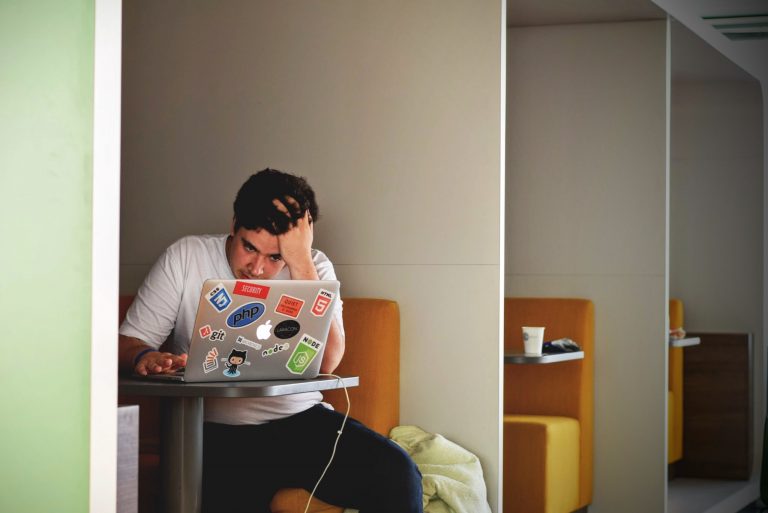Why sitting too much is bad for your health.
You could get Deep Vein Thrombosis – the most common type of blood clot, most common in the legs. People think of it as something you can only get on long airplane journeys. If part of this blood clot breaks off, then it could cut the blood flow to other parts such as the lungs causing a pulmonary embolism.
Why sitting is bad for you?
Sitting for short periods of time isn’t a concern. Sitting for a long time in front of the TV, behind a desk at work or behind the wheel of a vehicle can be harmful.
What happens when you sit for an entire day?

You could get Deep Vein Thrombosis – the most common type of blood clot, most common in the legs. People think of it as something you can only get on long airplane journeys. If part of this blood clot breaks off, then it could cut the blood flow to other parts such as the lungs causing a pulmonary embolism.
Other dangers
It is also well documented that a sedentary lifestyle affects your physical health by increasing the risk of diabetes, cancer, and heart disease, forgetting about the havoc it can cause from a musculoskeletal standpoint.
Risk of sitting
Research says, sitting for a lengthy period causes obesity, metabolic syndrome – conditions such as excess fat around the waist, increased blood pressure, high blood sugar, and abnormal cholesterol levels.
How sitting affects your hips and back
Your back and hips don’t support you well if you sit for long periods of time. Sitting causes the hip flexor muscles in the hips to shorten and that leads to hip, lower back and joint problems.
Sitting for a lengthy period can cause problems with your back particularly when you consistently sit with poor posture or don’t use ergonomically designed chairs.
Poor posture also causes poor spine health such as disc compression in the spine – leading to premature degeneration which is very painful.
How long can you sit at a time?
Experts suggest people stand in their workstations for about 15 minutes an hour. But a Waterloo University professor says their research shows people must be standing for at-least 30 minutes per hour to get maximum health benefits. Another piece of info states that getting up every twenty minutes is ideal as well.
What happens when crossing the legs?

By crossing the legs, you are putting pressure on the peroneal nerve, located behind the knee, which provides the sensations to your foot and lower leg. Crossing the legs also increases blood pressure.
Side effects
- Slower metabolism
- Spine and back injuries
- Low energy expenditure
- Chronic pain
- Metabolic syndrome
How long do you stand per day?
Experts suggest you should stand up at work for at least 2 hours a day and work your way towards 4.
Age specific advice
Under 5 years
Children under 5 years, advised is to limit the time they spend sitting, including travelling by bus, car, watching TV, and technology.
There is evidence that sedentary behavior in the early years is associated with childhood and adult obesity. Furthermore, there is strong evidence of lower cognitive development, but this is still up for debate.
Healthy patterns of behavior should be encouraged during initial stages or younger years to protect against the possible health problems in the future.
Tips to reduce sitting time,
- Reduce time spent in front of the TV and technology
- Reduce time spent in walking aids or baby bouncers
- Reduce time spent in car seats or highchairs
Young People
For children aged 5 to 18 years, reduce sitting time involves moving both in and outside of the home.
Tips to reduce sitting time,
- Make bedrooms a TV and computer free zone
- Choose gifts such as skateboards, footballs, baseball bats etc. to encourage active play
- Ask them to participate in housework such as setting the table, gardening or vacuuming.
- Arrange some fun activities that include lots of movement
Adults
Those who are aged 19 to 64 are advised to sit down less during the day, including at work, whilst travelling and even at home.
Tips to reduce sitting time,
- While travelling for a short distance, stand on the bus, or the train
- At work, take a walking break every time you go for a coffee
- While working on a laptop, just place it on a box or stand and work whilst standing up
- Take the stairs and walk up escalators rather than a lift.
- Get up every 20 min
Older Adults
Those over 65 should, where possible, should aim to minimize the time they spend sitting every day and stay active as long as possible.
Perform some tasks standing such as,
- Chat with others whilst having a coffee
- Cooking and baking
Tips to reduce sitting and staying active
- Use stairs instead of using the lift
- Avoid sitting in front of TV for long periods
- Play with your grandchildren
- Reacquaint yourself with the floor
- Try gardening
- Go for a walk
Conclusion
Counteract sitting
- Rather than driving, just walk or take public transportation
- Take extra time and do stretching exercises for hip flexors, calves and lower back muscles
- Per hour – take at least 2-3, 5 min break from sitting at a desk
- Stand up and stretch, a few jumping jacks goes along way
- Do regular workouts
- Work your core muscles at least twice a week with crunches, planks, etc.
Exercise might seem to be a time-consuming process and seems to require so much effort, but it is time well spent. Some might say like money in the bank. We used to think many ailments were simply normal and common in old age. Now we know it’s simply a lack of exercise.
Professionals from Bodhizone in New York are dedicated to keeping you moving and educating you about your own body! Our therapies help you to move with mechanical efficiency and thus relieve stress. Whether you are a business man or women, celebrity or even athlete Bodhizone must cover.
Our professionals can analyze everything from your cardiovascular efficiency to your musculoskeletal movements and provide you with the right advice, treatment and care.
Contact Theramotion – Call 718.279.9800, And take part in regular PT and Fitness sessions.

